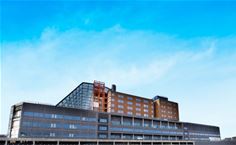Ford's CEO insists he's not worried about Elon Musk's Cybertruck rival
Tesla boss Elon Musk and Ford CEO Jim Farley appear to have reached a begrudging ‘frenemies’ agreement: they’ll work together, but remain rivals at their core.
At least, that’s the impression Farley gave when discussing his company’s partnership with its rival to use Tesla’s charging network.
Speaking to CNBC’s Jim Cramer, Farley said he had no qualms about being “opportunistic” on behalf of his customers, as the agreement means Ford drivers will be able to use any of Tesla’s 12,000 superchargers across the U.S. and Canada by the end of 2024.
He said the company hadn’t hesitated when signing the deal, with the Ford team liking Tesla’s reliability and locations when it came to charging points.
Although Farley is confident in Ford’s own “extensive” network of chargers—more than 84,000 across North America—he said the Tesla additions were “good for customers.”
Farley, who has been CEO of Ford since 2020, is also hoping for an additional boon of increased visibility by getting Ford motors on Tesla charging forecourts.
“When you go to a charging station it’s a social experience,” he explained. “People don’t realize it’s a lot like gas stations in the 1920s, and people go ‘Oh, that’s a Ford, I thought everyone had to buy a Tesla. Look at that Mach-E charging over there, maybe I should look into that car.’”
Turning to the rivalry between the companies, Farley didn’t seem tempered by the agreement when it came to Musk himself.
He said that during negotiations on the deal the tech titan was “respectful”, but added it was “more because of Henry Ford than Jim Farley.”
Farley also waved off any concerns about Musk’s Cybertruck taking on Ford’s electric vehicles like the Lightning truck model.
Pushing back on the insinuation that Ford was a combustion engine business that’s merely having a foray into the world of EVs, Farley said: “The reality is, America loves an underdog—and we are the market leader for EV trucks and vans, and we know those customers better than anyone.
“And if [Elon Musk] wants to design a Cybertruck for Silicon Valley people, fine,” Farley added..
“It’s like a cool high-end product parked in front of a hotel,” he said. “But I don’t make trucks like that. I make trucks for real people who do real work, and that’s a different kind of truck.”
America at its heart
Musk is pondering which of the global leaders he’ll be hitching his next big investment to—after courting France’s President Emmanuel Macron, India’s Prime Minister Narendra Modi and South Korean President Yoon Suk-Yeol as well as trade ministers in China.
Farley, on the other hand, is determined to stay close to his roots.
Despite tough negotiations on the horizon for Ford with the United Auto Workers union Farley said he wants to keep the majority of production in the U.S., adding: “We’ll see what happens, but the reality is we have always been in America at our company.
″We believe in American-made BlueOval city in Tennessee or Kentucky-built pickup truck, EV pickup truck; people will pay for that American technology.”
These employees will be working in one of Ford’s three sectors: Ford Blue for its conventional vehicles, Ford Pro for commercial vehicles and Ford Model e for its electric vehicles.
The reorganization of the business, announced March last year, came as Ford confirmed it expects to spend $50 billion on EVs by 2026—”we’re going all in,” Farley said in a statement at the time.
A little over 12 months later and Farley remains bullish on Ford’s electric prospects—despite EV revenue being down this quarter.
He told CNBC he expects to see a positive margin of 8% by the end of 2026, an optimistic outlook off the back of Ford’s latest earnings report which saw revenue hit $41.5 billion—well ahead of the $39.25 billion consensus estimates.



